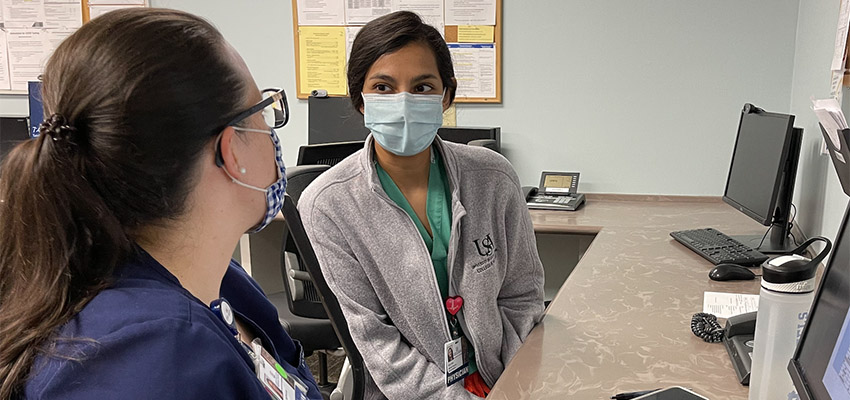Residents focus on improvement through Housestaff Quality and Safety Council
Posted on March 25, 2021 by Lindsay Fletcher

To integrate resident activities and education into the ongoing quality and safety initiatives throughout the academic health system, the Housestaff Quality and Safety Council was initiated by Michael Chang, M.D., chief medical officer for USA Health, and Carole W. Boudreaux, M.D., associate dean of graduate medical education for the USA College of Medicine.
“Education and experience in healthcare quality and safety is a foundational requirement for the education of residents,” Chang said. “The goal is for this to be a two-way conduit of activities between the residents and quality programs within the hospitals.”
The voluntary council began with a core group of residents and focused on basic education about healthcare quality and safety. Council members also initiated and executed performance improvement projects by residents on the council. For example, one such project within the department of pathology had a resident create a performance improvement program regarding the labeling of blood sample tubes bound for a hospital lab to reduce turnaround time and decrease the need for repeat samples sometimes caused by mislabeling.
Since its inception in August 2020, the council has grown into a standing committee that exists between the graduate medical education program and hospital quality departments. Council members are looking to grow the council with the goal of having at least one resident from each GME program within USA Health.
Kristen Noles, D.N.P., coordinator of quality and performance improvement with USA Health, joined the council in December 2020. As the USA Health GME Quality and Safety liaison, Noles said she is impressed with the residents’ engagement, thoughtfulness, openness and commitment to improving the quality of care for patients.
“Connecting resident voices with executive leaders who are committed to improvement is vital for prioritizing action to change,” Noles said. “The council structure makes it much easier to mentor residents from various programs through teaching them improvement science and applying various improvement methodologies to understand problems, create meaningful measures, highlight their involvement and celebrate their success in clinical transformation.”
